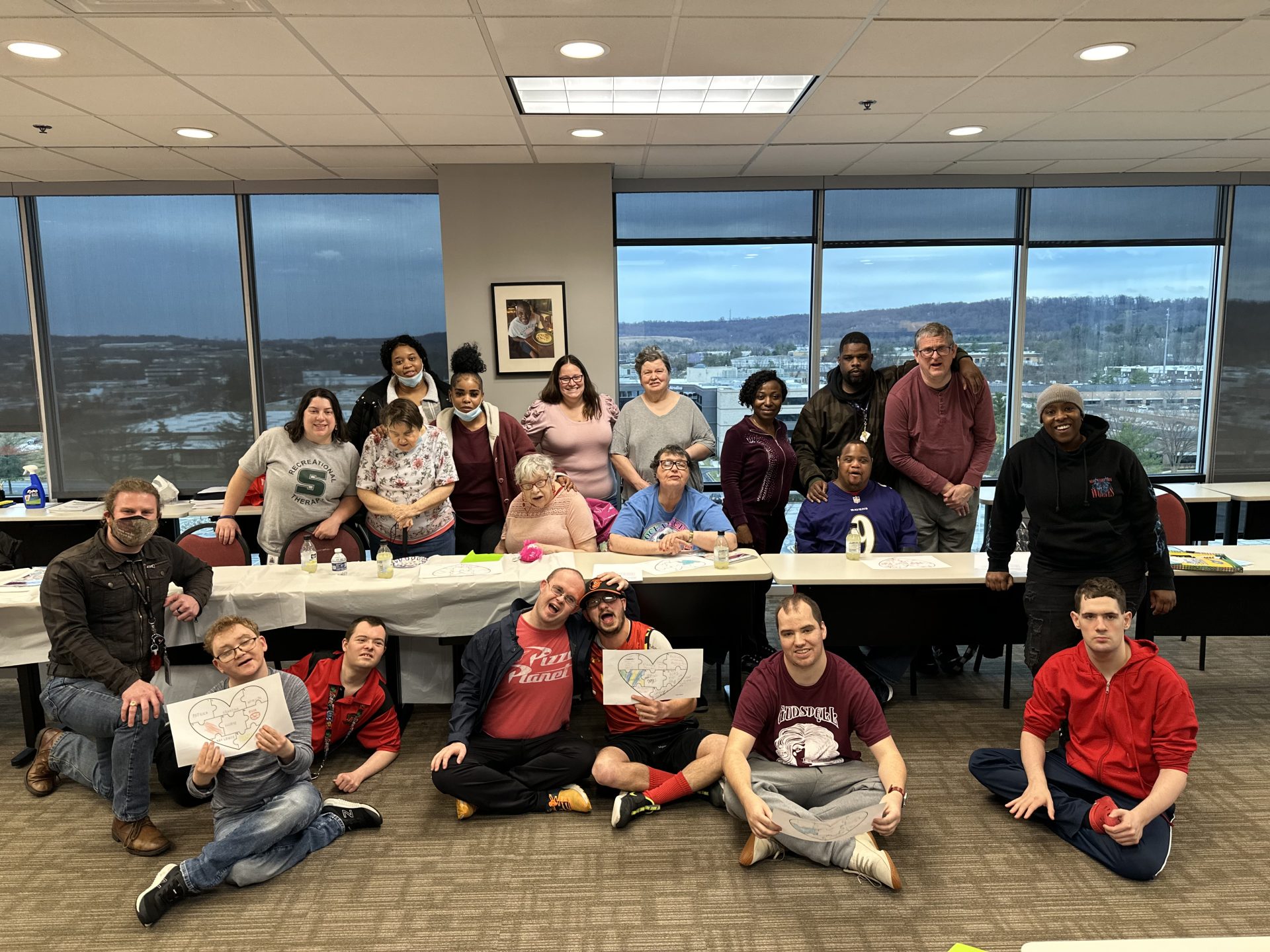
National Therapeutic Recreation Month
February is recognized as National Therapeutic Recreation (TR) Month and at Richcroft, we are proud to have two Certified Therapeutic Recreation Specialists (CTRS) on staff – Rachel Kollasch, Director of Day Services at Richcroft, and Anastasia Pyzik, Case Manager – Personal Supports. This month, we sat down with Rachel and Anastasia to learn more about this interesting profession and who can benefit from TR.
We asked Rachel, what is TR and how did you get into this field?
Rachel: Therapeutic recreation recognizes leisure, recreation and play as important components of a good quality of life. TR helps people to engage, be successful, and as independent as possible in meaningful life experiences.For our supported individuals here at Richcroft, Therapeutic Recreation is often used to assist participants with learning or improving the social skills needed to build meaningful relationships in their lives. Recreational therapy helps reduce depression, stress and anxiety while helping to build confidence so individuals can comfortably and fully participate as active members of the community.
I have worked in this field for 18 years in a variety of settings and knew from the beginning that I wanted to help people be more active in life and help them enjoy what they want to do to their fullest potential. Whether it was community, clinical or the school setting, I have had the opportunity to teach and support individuals being successful in their recreation and leisure lifestyles. I am a true believer that anyone can do anything they want, the sky is the limit, and their disability should not stop them from doing what they enjoy. It is my job to show them how.
Anastasia, can you tell us a little more about what Recreation Therapists do and how you came to be in this field?
Anastasia: A recreational therapist utilizes a wide range of activity and community-based interventions and techniques to improve the physical, cognitive, emotional, social, and leisure needs of individuals with disabilities. We may also help the individuals find adaptations or modifications to activities and equipment to help them participate in their leisure interests more fully. Participation in leisure can have many positive health benefits that will help individuals thrive in their life, community, and relationships.
To make a sort of long story short, I came to be a recreation therapist because I wanted to combine my love of sports mostly (and other recreation) and wanting to help people, disability or not. Sports has given me so many awesome experiences throughout my life and continues too and can be such a fun and social experience and I wanted to try to give that same experience to others.
Who can benefit from TR and why is it so important?
Anastasia: I’ve been asked before, what is the difference between recreation and therapeutic recreation. The truth is, there is no difference, it just that Recreational Therapists work with a wide range of individuals who utilize health support services. These include people with disabilities, but also geriatric populations, those with mental health issues, addictions and dual diagnosis, physical medicine and rehab, pediatric clients, incarcerated clients and people of any age.
Like I mentioned before, we can help individuals by finding adaptations/modifications or specialized equipment to help them participate more fully in their favorite activity interests, i.e. card holders for those with limited fine motor skills or equipment for an individual’s wheelchair to participate in floor hockey. The health benefits of leisure participation can help prevent re-hospitalizations after diseases or illness, help promote positive coping skills or mechanisms and improve self-esteem.
What are some the benefits of recreation therapy and how are you using your background in TR to enhance the programs we offer here at Richcroft?
Rachel: You commonly find Recreational Therapists in hospitals, rehab centers, long term care facilities and summer camps, but having a recreational therapist on staff is great for any organization that is helping individuals build their independence. We are able to assist with training and educating staff in supporting individuals in the community by creating adaptations and really explaining the “why” we do what we do. In our CDS Program, which is 100% community based, our individuals get many opportunities to put their skills to practice while socializing with peers who share similar interests. A goal for many of the individuals in our CDS Program is socialization and building friendships and relationships in the community. Therapeutic Rec is a great way of supporting them as they build all sorts of healthy living skills and lasting friendships at the same time. That’s the heart and soul of our CDS Program at Richcroft.
Rachel and Anastasia, I understand there is a new training the two of you are developing at Richcroft for DSPs. Can you tell us more about it?
Rachel: We are excited to be developing a training that will help create a sense of what it might be like to live with a disability. Each person with a disability has a different experience and way of navigating life, but we are going to attempt to simulate some of those experiences for our DSPs. What it might feel like to have a visual impairment, experience deafness, or have limited use of your arms or legs.
Anastasia: We hope this will help the staff and others understand what it might be like to live with a disability and in turn be able to better support our individuals in their everyday life while living in their community.
It sounds like Rec Therapy is something we can all benefit from. Can you tell us some ways that the average person can incorporate Rec Therapy into their lives or the lives of those they love and care for?
Anastasia: Anyone can use rec therapy to make activities purposeful and meaningful! Participating in leisure activities have a great positive impact on self-esteem, and keeping your mind and body active! Try a new activity you’ve never done before! If it doesn’t work out, try another one.
